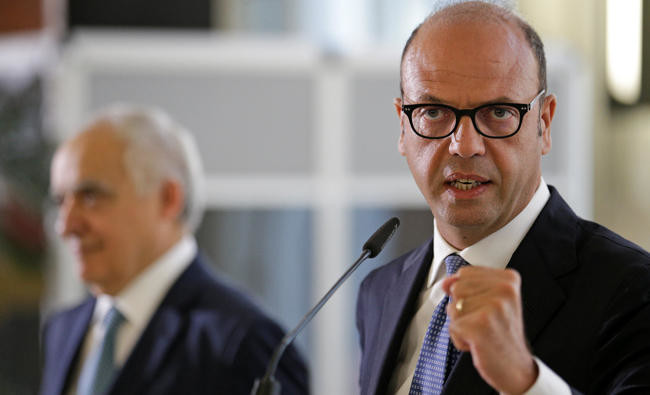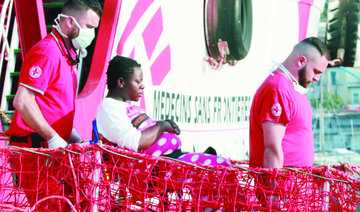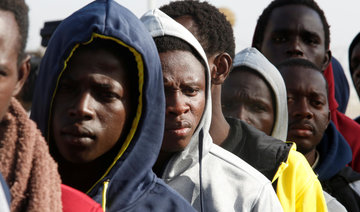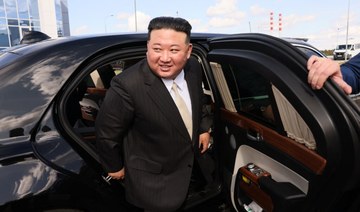ROME: The UN’s new envoy to Libya has endorsed Italy’s drive to stem the flow of migrants leaving the north African state for Europe, despite misgivings among human rights groups.
Rights campaigners fear Italy’s focus on strengthening the Libyan coast guard to ensure boatloads of migrants are intercepted before reaching international waters could place thousands of people with a right to asylum at serious risk.
But Ghassam Salame, a former Lebanese culture minister appointed in June to head UN operations in Libya, described the cooperation between Tripoli and Rome as a “very constructive” way of dealing with an acute problem.
“It would be absolutely unrealistic to ignore the seriousness of the challenge of irregular migration,” Salame said after meeting Italian Foreign Minister Angelo Alfano in Rome.
“There are hundreds of millions of them across the world. This is very serious problem.”
“I also believe each country has an absolute right to control its borders and that the best way of doing that is through cooperation with neighboring countries.
“We are on a good track of strengthening cooperation to meet this challenge which is a challenge for all of us.”
More than 600,000 refugees and other migrants have reached Italy from Libya since 2014.
Italy’s center-left government is under intense pressure from domestic opponents and EU partners to close down the route.
Its navy is providing technical assistance to the Libyan coast guard, which has also been provided with new patrol boats and training by its former colonial master.
Alfano said the cooperation was beginning to bear fruit, in a reference to a more than 50-percent fall in the number of migrants rescued at sea during July, when compared to the same month in 2016.
Italy has also been working to stem migrant arrivals in Libya through better controls on the southern border, cooperation with countries like Niger, Chad and Mali that migrants transit on their way to the Mediterranean and a voluntary repatriation program.
Detention camps
Refugee agencies say Libya is too unstable for any potential refugee to be safely returned there.
There is particular concern over the fate of migrants who end up in the country’s detention camps, where conditions are usually squalid and a lack of regulation means people risk torture, sexual abuse and forced labor.
Alfano insisted the Italian government would not compromise on its commitment to human rights.
“It is not a derby between security and humanity,” he said. But he acknowledged Libya’s migrant holding facilities leave much to be desired.
“Now that we have an opportunity to reduce the fluxes and organize refugee camps in Libya, we have to invest heavily in an international, multilateral humanitarian operation to ensure these camps have an acceptable standard in terms of human rights and every other respect,” Alfano said.

























